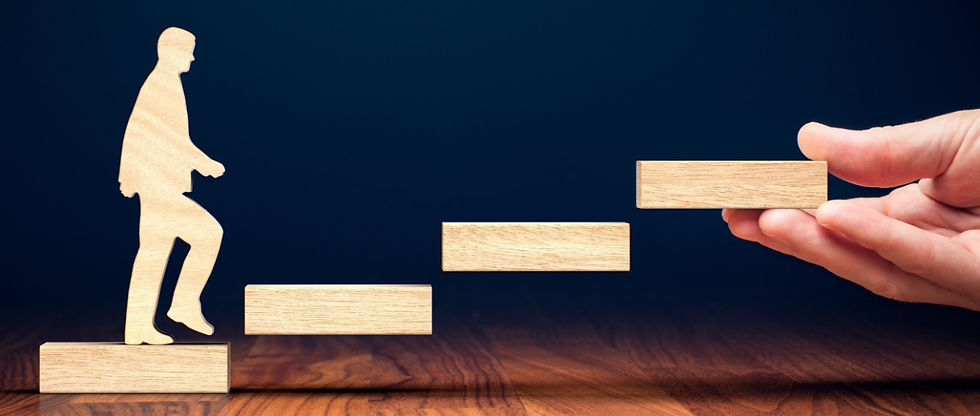Developing Empathy
- Mary Ely

- Oct 19, 2022
- 3 min read
RocheMartin defines Emotional Intelligence by a set of 10 competencies and this is one in a series of blogs covering each one.

Empathy focuses on understanding and demonstrating awareness of another person’s experience. What their perspective is and the likely impact of that on how they're feeling.
The 3 components of Empathy are
Curiosity
Proactively exploring what someone thinks and how that makes them feel
Listening
Being entirely focused on what they have to say. Listening with your eyes as well as your ears. What does their body language and the way they are talking tell you about how they feel about the situation?
Emotional Connection
Demonstrating that you've heard and understood correctly
To find out more and why it's so important, have a look at this blog.
A few ideas to increase your Empathy.

Experiment with my SOAR approach
Open up the space to allow them to speak freely
Stop mind-reading and start guessing
Develop the attitude for active listening
Think WAIT and read Nancy Kline's book
Coaching
Experiment with my SOAR approach
...that enables your relationship skills and the quality of your relationships to “SOAR”
Self awareness
Other perspective
Attitude
Responsibility
Find out more in my blogs on relationship skills and team environment.
Open up the space to allow them to speak freely
People won't want to volunteer to explain anything to you if
They don't feel safe to do so, afraid of
being judged badly,
being told they're wrong, or
creating conflict
You wade in with what you think first!
So you have to let them know they can trust you.

Encourage them to open up and tell you what they think.
Let them know that whatever they have to say is OK and you won't judge them badly for that or get cross. You're genuinely interested in what they think.
And ASK BEFORE YOU TELL!
...and if you have a problem with that concept, then check out these blogs that cover the NLP communication model and what you can learn from that to help with relationships.
Stop mind-reading and start guessing
We’re really good at assuming what people are thinking and knowing why they are behaving the way they are.
It’s like we believe mind-reading is a real thing.

But it’s not!
...and it's annoying when someone tells you how you're feeling and they're wrong.
So avoid "I know how you feel". Stop assuming you know how someone feels and think 'guessing' instead.
Check if what you think might be true or simply acknowledge the situation and ask them how they're feeling.
"That seems like a lot. How are you feeling?"
"That sounds tough. Is that all a bit overwhelming?"
Develop the attitude for active listening
Lots of people talk about how to ‘actively listen’. For example
Maintain eye contact
Indicate with small gestures that you’re listening
Keep your body language open so you look engaged
Ask open questions
Don’t interrupt
Play back what they’ve said to show you have been listening

And I think the easiest way to do all of that naturally without having to remember a list is to approach each conversation in the same way as you would an enthralling book where you can't wait to find out what's coming next.
Assume that the person you are talking to is the most fascinating person on the planet and you want to know everything about how they are thinking and feeling and you want to be sure you’ve understood them accurately
And if that doesn’t work and you’re thinking about interrupting them or you notice you're monopolising the airspace, then…
Think WAIT and read Nancy Kline's book

So just stop, listen and WAIT until they've finished before thinking about any response.
And read Nancy Kline's book "Time to Think - Listening to ignite the human mind" is likely to change how you think about listening and interrupting forever!
Coaching
Coaching is by far the most efficient, effective, engaging, empowering and enjoyable way to build any of the Emotional Intelligence competencies.
Helping you to develop, refine and embed your own personalised strategies for each competency.

If you’re interested in understanding your level of emotional intelligence using one of the RocheMartin assessments or would like to explore coaching for developing components of it like Empathy or Relationship and Communication Skills as a whole, you can book a free call here.
And if you'd like to try out my monthly emails that provide a roundup of my blogs as well as other insights, you can sign up here.


Comments